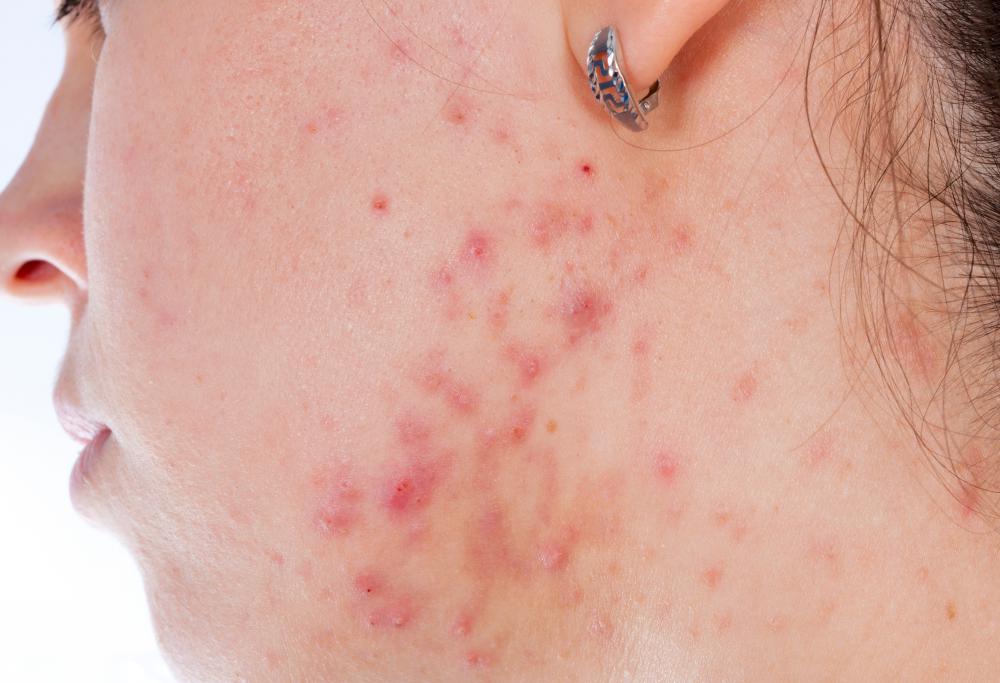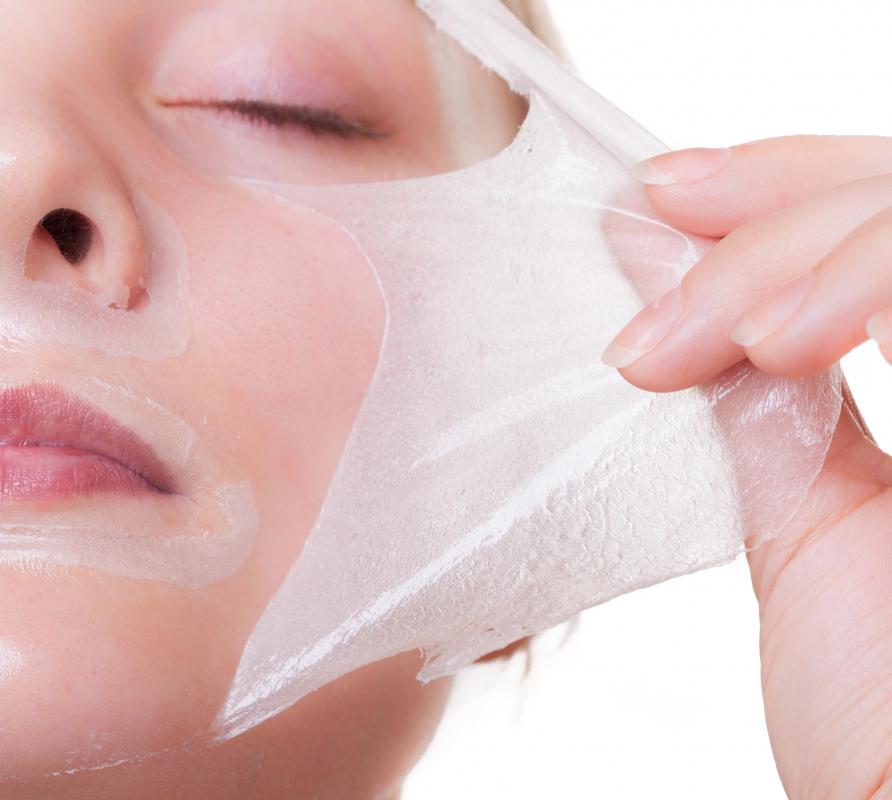At WiseGEEK, we're committed to delivering accurate, trustworthy information. Our expert-authored content is rigorously fact-checked and sourced from credible authorities. Discover how we uphold the highest standards in providing you with reliable knowledge.
How do I Choose the Best Sensitive Skin Mask?
A skin or face mask is a thick, creamy treatment applied to the skin to provide deep cleaning, brightening, and/or moisturizing action. Different types of masks provide different benefits, and there are a wide variety of ingredients depending on what the mask is designed for. Often these ingredients can be irritating to people with sensitive skin. Choosing the best sensitive skin mask means knowing what ingredients can cause a reaction, avoiding perfumes and other additives, and looking instead for gentle, natural ingredients. If your skin is very sensitive, it's a good idea to test the product before you buy it, if possible.
People with sensitive skin may suffer from severe acne, rosacea, contact dermatitis, or just a burning and stinging sensation when they use certain products. If you are looking for sensitive skin masks to address these issues, try to find products that do not contain large amounts of chemicals which will penetrate your skin. A good sensitive skin mask should not have ingredients like formaldehyde, urea, or hydroxyl acids retinoids, which have been shown to irritate the skin.

Avoid skin masks specifically created for exfoliation. The formulas might contain large particles which will scratch and irritate the skin. If you want to use a face mask to gently exfoliate your skin, make sure that the product's labeling says that it is appropriate for sensitive skin.
Face masks with a strong fragrance or paraben preservatives should also be avoided. Some people with sensitive skin also have allergies, and fragrant formulas may cause a rash on the face. There are a number of dyes that can also cause problems, such as tartrazine — also called E-102 or FD&C yellow number 5.

People with sensitive skin may find acne treatments and medications harsh and irritating. Some of these treatments, including salicylic acid and benzoyl peroxide, may cause problems for those with sensitive skin. If you suffer from acne and have sensitive skin, look for a sensitive skin mask with natural ingredients. For example, chamomile fights acne-causing bacteria and has a soothing, cooling effect on skin. A sensitive skin mask that contains tea-tree oil, a natural product which helps fight blemishes and prevent future breakouts, is also a great alternative.

Sensitive skin affected by rosacea typically is reddened due to broken blood vessels in the face. If you have rosacea and are looking for a sensitive skin mask, avoid products containing vitamin C and alpha hydroxy acids (AHAs) as their high acidity levels may cause stinging. Formulas with anti-inflammatory ingredients will even your skin's tone and decrease the appearance of redness.
If you have allergies, you must take extra care when purchasing skin products, as using face masks with certain botanical products may trigger an allergic reaction. For example, although chamomile has healing properties, someone allergic to ragweed may have a reaction from using a mask containing this plant. Once your dermatologist helps you identify your allergies, check the ingredients of face masks and make sure that they will not irritate your skin and cause a rash.
Before using any type of skin mask, do a patch test. Apply a small amount under your jawline, on your neck, or behind your ear and leave it overnight. If the formula does not irritate your skin, it is probably safe to use the mask.
AS FEATURED ON:
AS FEATURED ON:













Discussion Comments
Aloe vera mask is probably the one type of mask that can be used by everyone without issues. It suits all skin types and people with sensitive skin won't have any negative reactions either.
Aloe vera is actually a healing agent. It's soothing and relieves redness and inflammation. It's used by doctors for burns. So it cools skin and reduces irritation. Nothing could be better for sensitive skin types.
I personally make my own aloe vera mask. I use 100% pure aloe vera gel. I apply it all over my face and then place a dry, clean paper mask on top. Thin tissue paper will work as well. I leave this on my skin for some time. Pure aloe vera gel can even be used as a daily moisturizer which is a recent trend among Asian women.
@SteamLouis-- You're right. Salicylic acid is another ingredient found in some facial masks that can cause problems for people with sensitive skin.
In my experience, masks with the simplest ingredients and the fewer number of ingredients are the best for sensitive skin. The ingredients should not be too drying or harsh. And there should be no alcohol in it.
Those with sensitive skin should be careful when using skin masks containing natural oils. Just because something is natural does not mean that one cannot be allergic to it or that it can't cause irritation.
I have acne skin and I once used a mask containing tea tree oil. Apparently, tea tree oil is a popular ingredient in products for oily, acne-prone skin. I used it without testing it and broke out in a red, itch rash afterward. I'm clearly allergic to tea tree oil.
This was a good lesson and whenever I buy a new skincare product now, I always test a little bit on my arm to see if I'm allergic. And of course, I avoid all products and masks with tea tree oil.
Post your comments